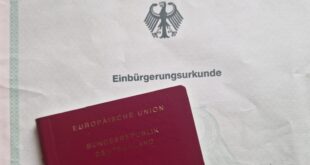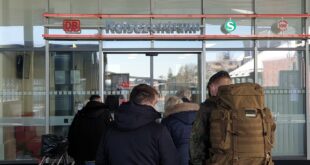The amended Infection Protection Act was passed by the Bundestag and Bundesrat on Friday, opening a new phase in the management of the coronavirus pandemic after two years.
The previous protective measures will be replaced with effect from Sunday with significantly fewer regulations: no more masks in schools, shops and restaurants. They will only remain compulsory in nursing homes, clinics and doctors’ practices.
Here are the major changes in the regulations:
- The so-called 3G proof of being vaccinated, recovered or tested is no longer required for long-distance rail travel. The obligation to wear FFP2 masks or medical masks in long-distance and local trains, however, will continue to apply. The 3G rule also remains in place on-board catering coaches nationwide.
- Mask wearing and compulsory tests can be ordered in hospitals, care facilities and doctors’ clinics.
- The legal obligation to meet the 3G rule at workplaces is also lifted. Companies can set their own rules, dependent on infection rates.
- The 16 German states are free to keep basic measures in place and introduce additional curbs where large infection clusters emerge.
The federal states have been critical of the relaxation of the protective measures, which they deem premature. This is due to the still high rate of infection.
On Sunday, Germany reported 131,792 new infections, according to the Robert Koch Institute for infectious diseases. The 7-day incidence rate across the country is 1,708.7, up from 1,526.8 a week earlier.
However, the federal government said the situation in hospitals and intensive care units was no longer as dramatic as it would have been in the past with such high numbers. In addition, the disease is currently milder in most people, especially those who have been vaccinated.
States agreed with the federal government on a two-week period to remove most of their rules, including compulsory indoor mask wearing.
Bavaria said it will keep mask requirements in place until April 2, as well as earlier rules that limit access to nightclubs, cultural and sporting events, restaurants and cafes.
Most of the other states, including the most populous state of North Rhine-Westphalia, said they’ll also keep the mask requirement, among other basic measures, until next month.
Berlin and Saarland said they’ll keep their current measures in place until March 31.
Sola Jolaoso with DW report
 THE AFRICAN COURIER. Reporting Africa and its Diaspora! The African Courier is an international magazine published in Germany to report on Africa and the Diaspora African experience. The first issue of the bimonthly magazine appeared on the newsstands on 15 February 1998. The African Courier is a communication forum for European-African political, economic and cultural exchanges, and a voice for Africa in Europe.
THE AFRICAN COURIER. Reporting Africa and its Diaspora! The African Courier is an international magazine published in Germany to report on Africa and the Diaspora African experience. The first issue of the bimonthly magazine appeared on the newsstands on 15 February 1998. The African Courier is a communication forum for European-African political, economic and cultural exchanges, and a voice for Africa in Europe.








